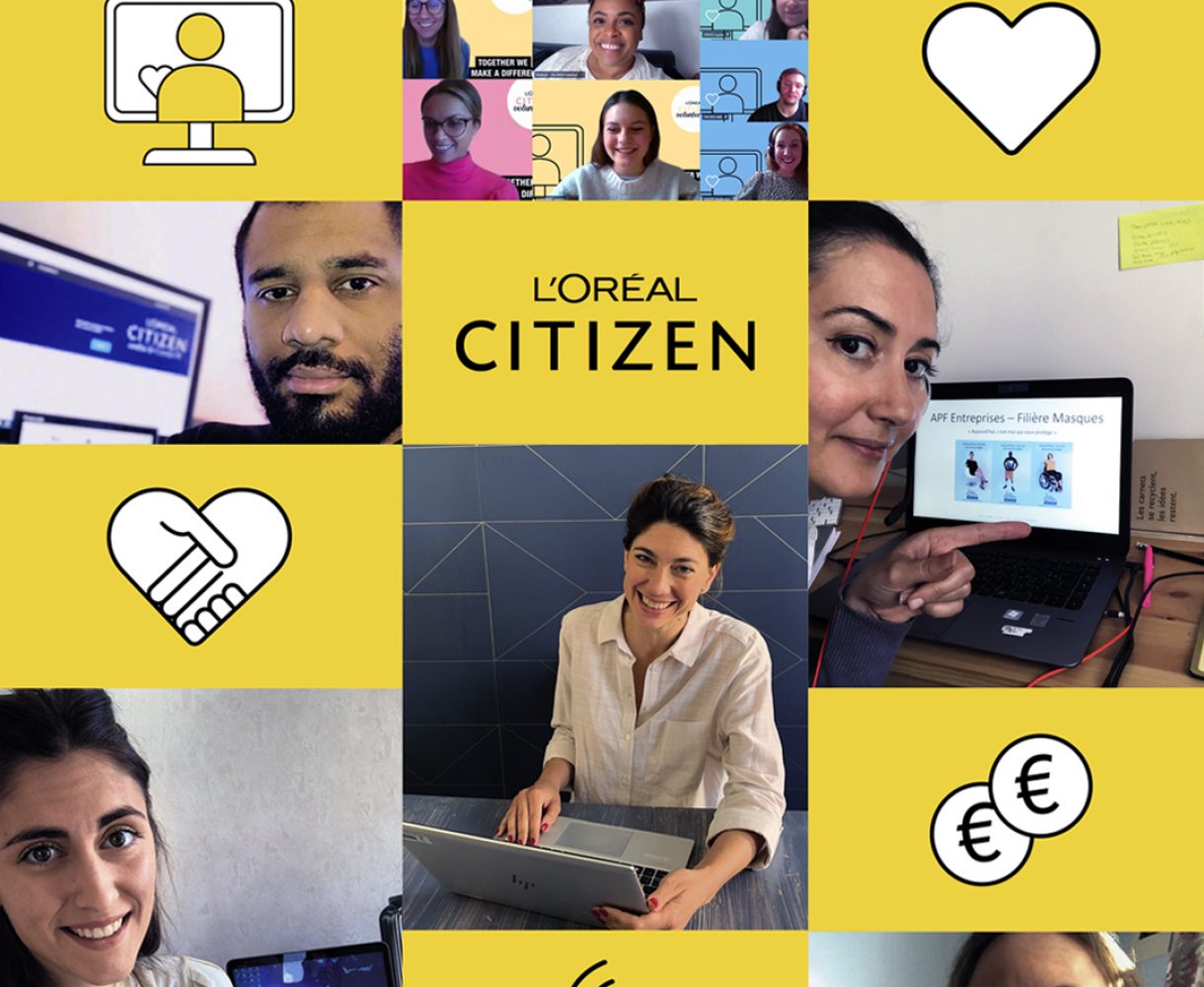
Engaged employees, engaged citizens
Meeting the growing need for solidarity
The consequences of the public health crisis sparked by the Covid-19 pandemic left many charitable organisations vulnerable and unable to meet growing demand. They faced dwindling financial resources as the economy slowed, as well as lower numbers of volunteers, and were often forced to adapt their usual procedures. Non-profit organisations needed more support than ever before.
Remote assistance to maintain social ties
From the first lockdowns in the spring of 2020, L’Oréal employees contributed to solidarity efforts to combat the coronavirus. Innovative forms of remote engagement enabled volunteers to help hospitals and the Group’s partner non-profits all while respecting social distancing measures. By making financial donations, providing professional coaching, tutoring school children and calling to check on isolated elderly people, L’Oréal employees did their part to mitigate the impacts of the pandemic.
Many employees volunteered
Given these successes, L’Oréal decided to reinvent its traditional Citizen Day, which is usually filled with volunteer operations in the field, to make room for new forms of engagement. The initiative was rolled out in many countries.
In the United States, around 300 employees participated in a volunteer week thanks to the L’Oréal USA Gives Back programme, providing support for isolated elderly people and school children. In all, employees supported 20 charitable organisations, reaching 6,500 beneficiaries. L’Oréal teams in the Middle East developed several digital initiatives for the environment to finance beach clean-ups, the planting of trees and the distribution of food parcels to underprivileged workers. In France, over 500 employees volunteered up to six hours of their time to online initiatives and hackathons and helped fund several causes through solidarity fundraising campaigns and payroll giving.
In several Asian countries, where public health conditions permitted, employees were able to mobilise in the field to organise in-kind donations. In South Korea, employees worked with the Red Cross to put together 1,000 beauty product boxes for underprivileged communities. In Taiwan, they donated 900 gifts for underprivileged children.





